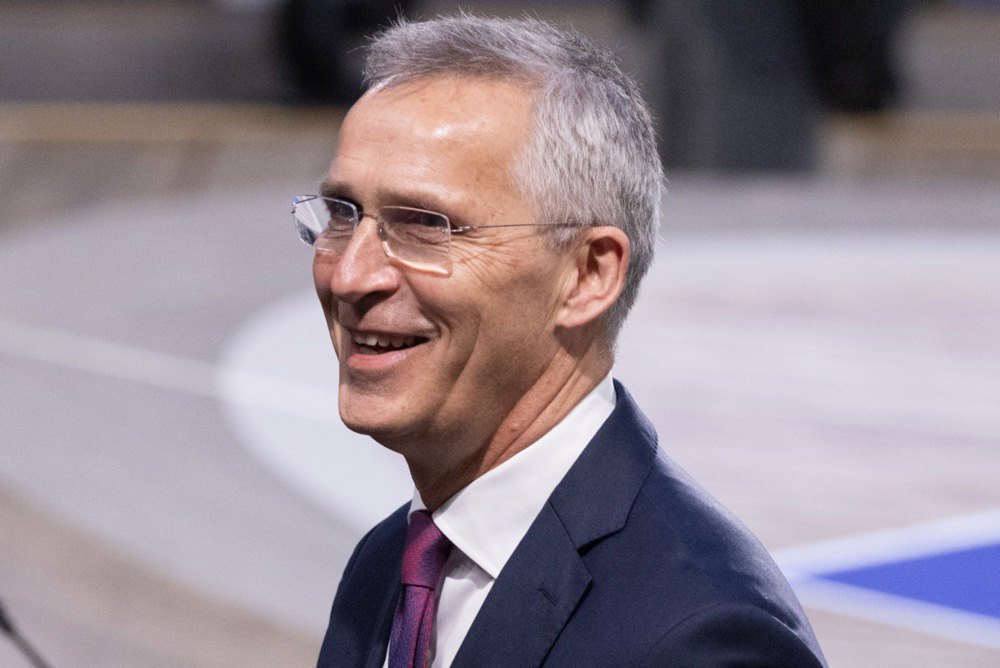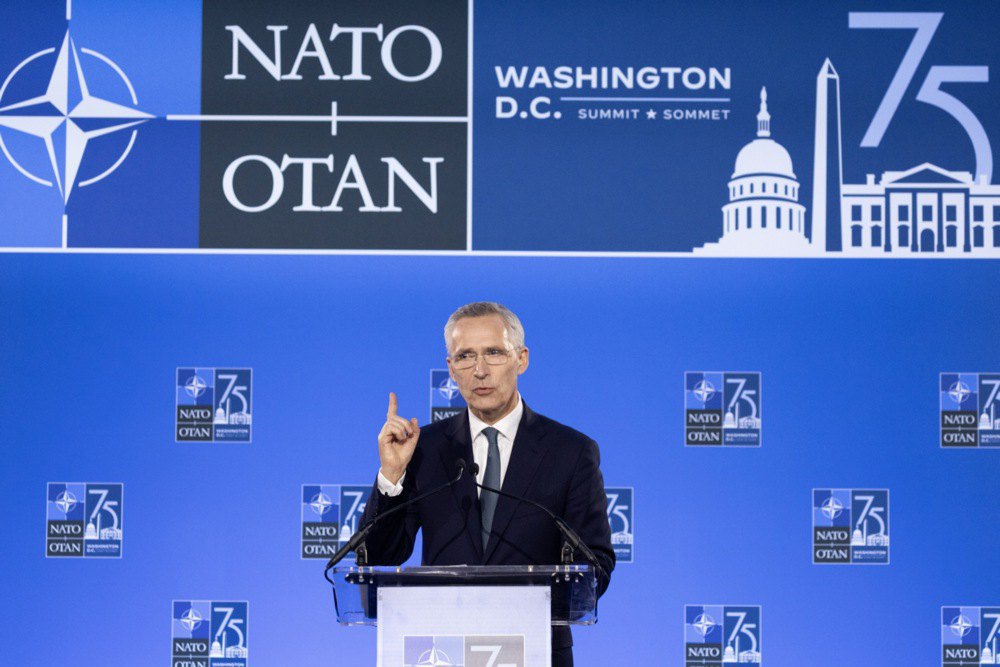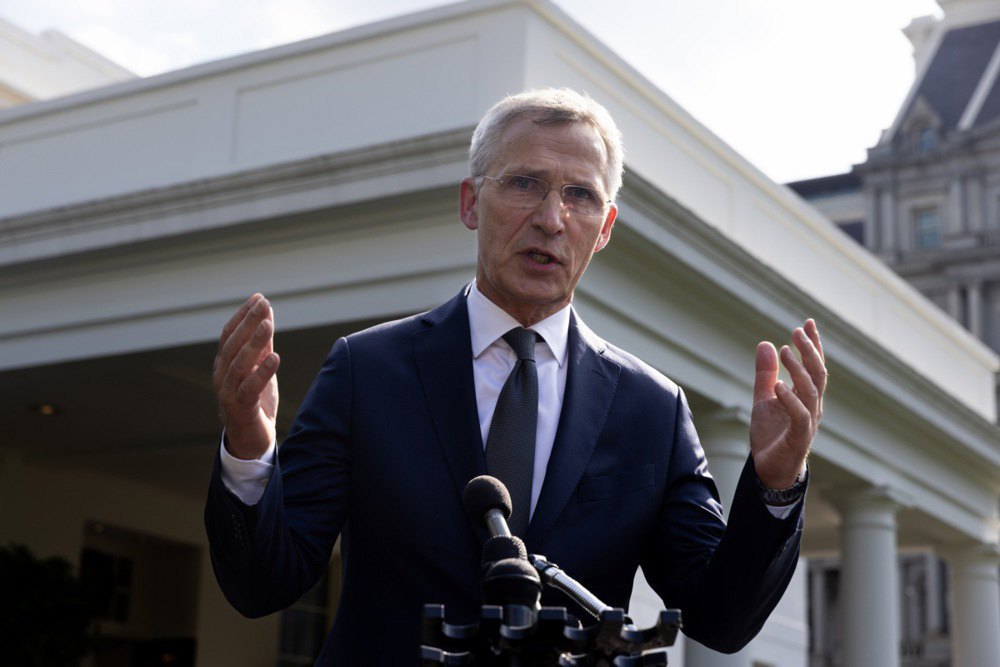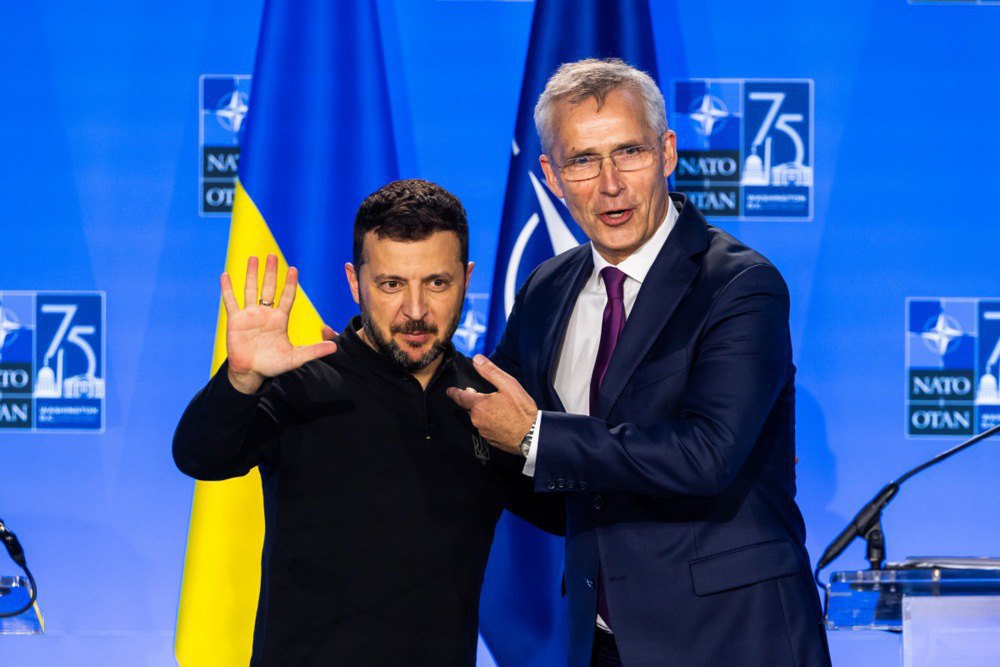
Speaking to journalists, Jens Stoltenberg most often mentioned three countries: The United States, China and Ukraine. Most of the questions concerned China, but in the context of its role in Russia's war against Ukraine.
LB.ua provides a summary of the NATO Secretary General's opening remarks and his answers to questions from the media.
Mr Stoltenberg said that important decisions had been made at the North Atlantic Council meeting at the level of heads of state and government: to make NATO stronger and NATO allies safer. "We have 500,000 personnel on high alert," Stoltenberg said. "Today, 23 NATO countries invest at least 2% of GDP in defence, unlike in 2014, when only two countries did so. These are record levels. We have done this, but we need to do more, so today we have agreed to strengthen transatlantic cooperation and production, to strengthen our air and missile defence, including a new base in Poland."
As for Ukraine, the NATO Secretary General said, an important decision was made to "further strengthen support and also share the burden". "We will also take over the coordination and transfer of much of the international security assistance. Under the command of a three-star general, 700 people will work at NATO headquarters in Germany, as well as at NATO headquarters in the eastern part of NATO, to support Ukraine. NATO will also coordinate training for the Ukrainian Armed Forces at facilities in NATO countries, and manage the transfer and repair of equipment."

Pledging NATO's support for the long-term development of the Ukrainian Armed Forces, Mr Stoltenberg said that "this will not make NATO part of the conflict, but will help Ukraine exercise its right to self-defence."
"We have agreed on financial commitments: 40 billion euros will be the minimum baseline for the next year. We will review these figures at the summit in 2025," the Alliance Secretary General also said. "We are doing this not because we want to prolong this war, but because we want to end it as soon as possible. If we don't want to bow down to Putin, we need to show commitment and determination. Moscow will realise that it will not wait for us, and the sooner this war ends, the sooner it will end."
"We will take steps to bring Ukraine closer to NATO," assured Stoltenberg. "Ukraine will continue its reforms, and we will continue to support it on its irreversible path to NATO membership. Our work will ensure that when the time comes, Ukraine will be able to join NATO without delay. It is only a matter of time".
Concluding his opening remarks, Stoltenberg said that the Allies agreed to strengthen their partnership, especially in the Indo-Pacific region. "Putin's war is fuelled by those who do not share our values," he said. "Iran and North Korea are providing Russia with direct military support, and China is fuelling Russia's war economy. This is a significant strategic shift, and we need to be sober about this threat."
In conclusion, the NATO Secretary General reiterated that China has become a decisive factor in the war between Russia and Ukraine.

Answering journalists' questions, Jens Stoltenberg, in particular, expressed confidence that the United States, with "a strength that neither Russia nor China has", will remain a member of NATO, no matter who wins the US presidential election. He also confirmed that "Ukraine has the right to self-defence": "This is an aggressive war, Russia has violated international law, Ukraine has the right to self-defence, we are helping it to exercise it by providing weapons and equipment. The right to self-defence includes the right to strike at military targets on Russian territory." The NATO Secretary General reminded that "certain restrictions" had been lifted due to the Russian offensive in Kharkiv Region.
The journalists also asked Mr Stoltenberg to explain in what sense Ukraine's path to NATO is irreversible. "It is a powerful message from NATO Allies," Stoltenberg replied, "We really want Ukraine to join the Alliance and we are working to make it happen. Words are important, words create expectations, an agenda, define ambitions. In reality, what we do is just as important. Coordinating support and training will also help Ukraine in its progress towards membership. We agreed to establish a centre for joint analysis and training in Poland. The fact that the Allies are providing F-16s and other weapons will allow Ukraine to build a NATO-compatible air force. A package of long-term commitments, the provision of equipment, bilateral security agreements - all this is what we call a bridge to membership. And this will be an irreversible path."









